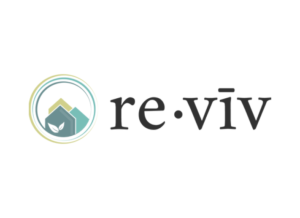After selling your startup stock options or your business, you are searching the horizon for your next opportunity. But where are you headed, and how do you plan to get there? Reaching your financial goals necessitates finding a place to safeguard and grow your wealth- you can’t just leave it in a savings account collecting 2% annual interest. In addition, there are significant tax implications to consider after receiving capital gains from the sale of a business or recently sold stock.
Why Reinvesting Capital Gains From the Sale of a Business Makes Sense
Growth Considerations
While we are currently experiencing a prolonged period of low inflation rates, keeping your nest egg in cash or low yielding assets still prevents you from harnessing the power of compound interest.
Leverage More of Your Capital
When you claim business or startup sale-related proceeds as income, you are immediately responsible for paying a substantial percentage of that money to the government. Tax-deferred investments not only allow you to reduce your eventual tax bill, they also allow you to leverage the funds you would have otherwise paid out in taxes to grow your retirement account.
Tax Benefits
Speaking of the taxman- there are several ways to leverage IRS regulations to diminish or even eliminate your windfall-related tax bill. Instead of handing that money to Uncle Sam, you can leverage that capital through a tax-advantaged asset, such as an investment in a Qualified Opportunity Zone Fund.
What are Opportunity Zones?
As far as tax deferral strategies for recently sold businesses go, Opportunity Zones are relatively new. Created by Congress by way of the 2017 Tax Cuts and Jobs Act, these “Opportunity Zones” are federally-designated census tracts that have historically lagged behind the rest of the nation in terms of economic development. To spur growth and renewal within these areas, Congress authorized the IRS to offer substantial tax deferral, reduction, and elimination opportunities to investors that choose to deploy capital into a Qualified Opportunity Zone Fund.
What is a Qualified Opportunity Zone Fund?
A Qualified Opportunity Zone Fund, or QOZ Fund, is an investment vehicle formed as a partnership or corporation with the specific purpose of investing in a property that falls under the Opportunity Zone designation. 90% of the assets held by the fund must be within Qualified Opportunity Zones to be eligible for tax advantages.
Opportunity Zone Tax Advantages
There are two significant tax advantages offered by Opportunity Zone investments. If you invest in a QOZ Fund, you may be able to both defer and reduce capital gains taxes. In addition, any gains realized by the QOZ Fund have the potential to be 100% tax-free.
- If you invest in an Opportunity Zone fund within 180 days of recognizing a capital gain from the sale of stock, company real estate, or another form of capital gain (link to all eligible gains), you won’t pay capital gains in that tax year.
- If you keep your investment in the fund for ten years, you pay zero capital gains on any new appreciation of the asset you purchase or appreciation of the asset you invest in any fund.
Investors can obtain the benefits mentioned above from anywhere between 5-10 years before the program sunsets in December of 2026. If investors hold their OZ Fund investments for five years prior to December 31, 2026, they can reduce their deferred capital gains tax liability by up to 10% through a step-up in basis. Assuming they hold that investment for two additional years, or seven years total, add another 5% to that number for a total of 15% reduction.
As you can see, when looking for ways to how to not pay taxes on recently sold stock, Opportunity Zones offer substantial benefits compared to receiving the proceeds from a sale as income. Now that you’re familiar with the how and why of Opportunity Zone investments, you might be asking yourself:
How Can I Invest in an Opportunity Zone Fund?
In a recent report, Novogradac, the real estate research firm, counted upwards of 150 OZ Investment Funds in the US, with more than 27 billion dollars in assets. As this is a diverse and growing marketplace, there are many different sectors of real estate to choose from within the realm of Opportunity Zone investments. We are (unsurprisingly) partial to our segment of multi-family, primarily due to its rapid growth and scalability. The team at re-viv keeps a close eye on OZ Funds across the country, with a particular view towards West Coast Funds, so please drop us a line if you have any Opportunity Zone questions that need answering.
Are Opportunity Zone Investments Limited to Real Estate?
Nope! While most OZ Funds focus on real estate assets, the program is not limited to the real estate sector. Businesses within Opportunity Zones are also potentially eligible for tax benefits. Contact our team for an exclusive shortlist of Opportunity Zone-based business investment funds.
How Long do I Have to Invest in an Opportunity Zone Fund?
I feel like a broken record, but for the sake of fast readers and page scanners, I want to emphasize this critical takeaway: You have 180 days to invest in an OZ Fund from the date of your gain. There are exceptions for gains that come as the result of a real estate sale, if this is the situation you find yourself in, please contact us for more detail.
How do I Evaluate an Opportunity Zone Investment?
Like any other investment avenue, Opportunity Zone Funds should be subject to rigorous due diligence and research. While it is easy to get caught up in the hype surrounding OZ Funds, your long-term success with an Opportunity Zone asset rests on the same fundamentals that you would find with a traditional real estate or business investment. With a real estate-based Opportunity Zone asset, this means researching local demographics, projected growth, the cost of development or upkeep, and a whole host of other factors.
In our next series, we’ll discuss strategies investors can use to evaluate Opportunity Zone investments. Until then, feel free to reach out to me at matt.ryan@re-viv.com to discuss any questions you may have regarding Opportunity Zones and Opportunity Zone Investment Funds, or how our team can help you secure your financial future with an OZ investment.
Matt Ryan’s experience spans ten years as an entrepreneur, launching his first company out of the recession in 2009 in energy efficiency and green building. His most recent project is re-viv, which is focused on addressing the market inefficiencies in community revitalization. His companies Opportunity Zone Fund launched in the Spring of 2019 with a focus on an innovative product that addresses the growing affordability crisis in the Bay Area.



